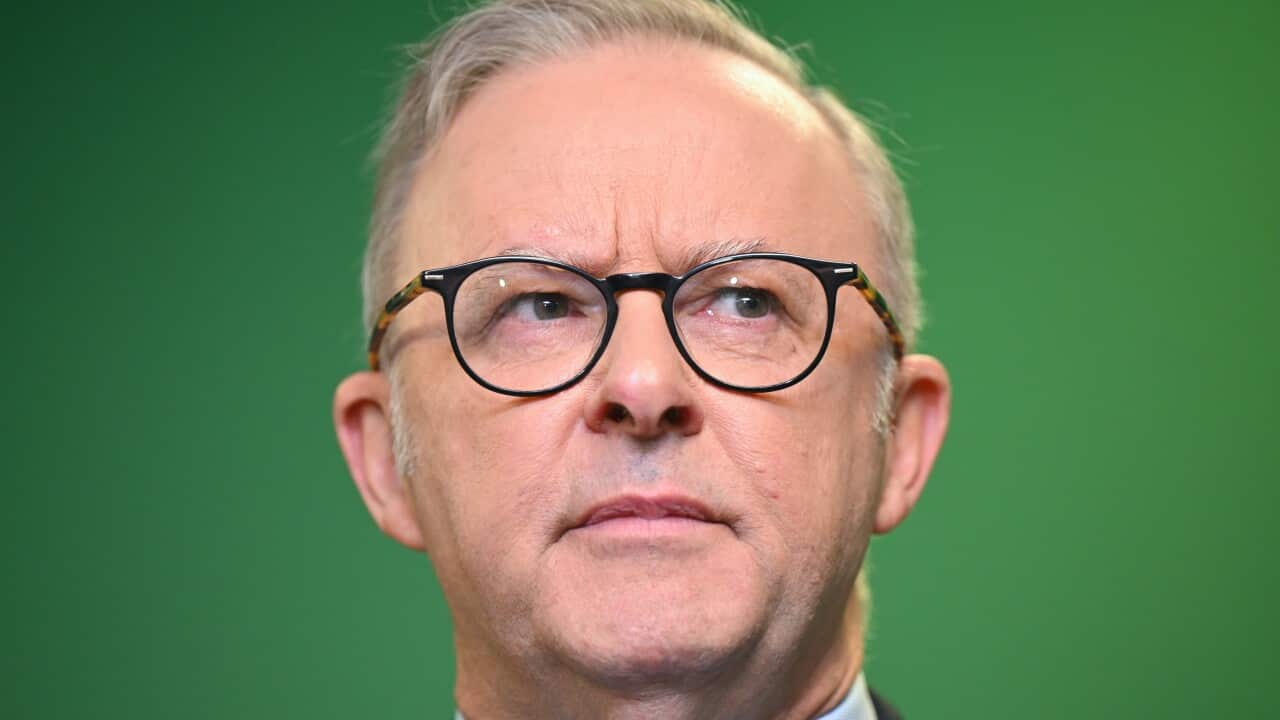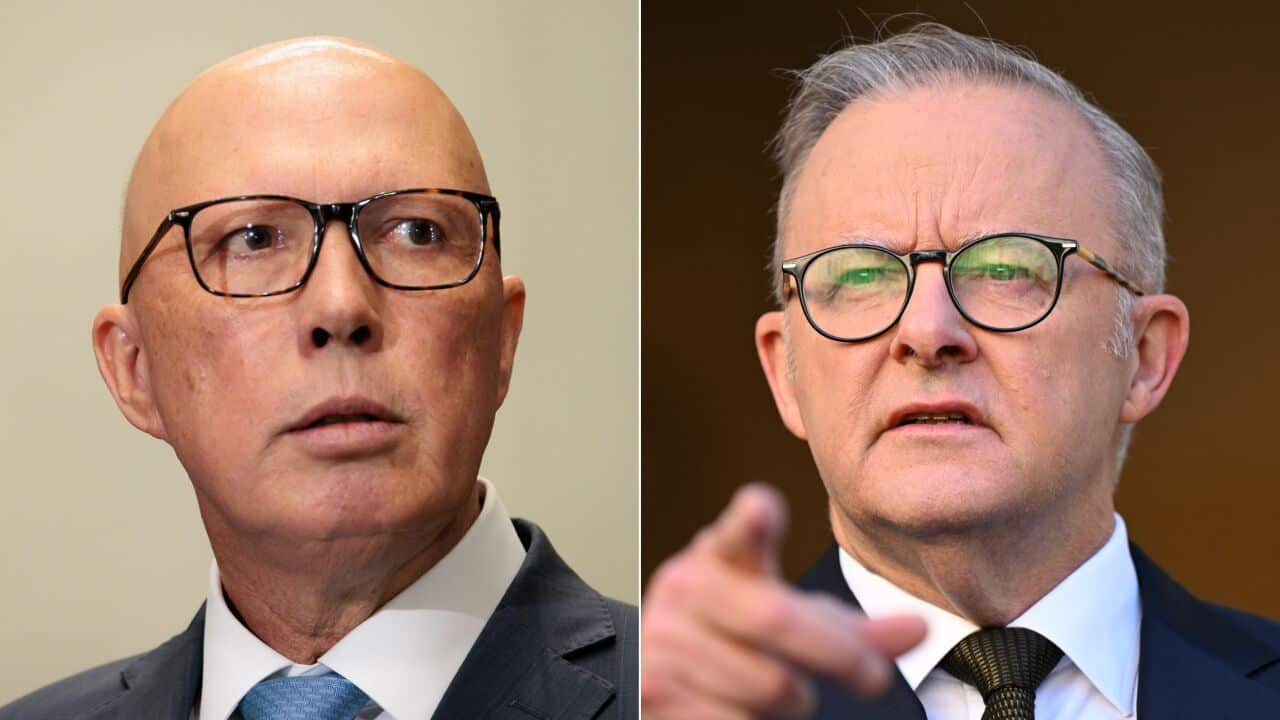It came as a shock for Ravi Chand when he realised that he could not converse in the language of his grandmother.
“I realised how important my mother tongue was for me after finding my maternal grandmother, whom I thought had passed away, only to find she was still alive waiting for me in the same house over 24 years later. However, I could not understand a word she said for I did not speak her language,” says Ravi Chand, a Melbourne-based screenwriter and producer, originally from Fiji. Ravi Chand is one of those Australians who grew up learning English as their first language, and in the process, their mother tongue was left behind.
Ravi Chand is one of those Australians who grew up learning English as their first language, and in the process, their mother tongue was left behind.

Screenwriter and producer Ravi Chand. Source: Supplied by Danyal Syed
“I grew up in Melbourne. It was tough," he says.
"I see many migrants now. Back then, when I was in primary school, I was one of the two brown kids in the entire school. Because my English wasn’t that good, I thought other kids giving me nicknames and laughing at me was fun.
“I went back home and told my mum what they were saying. They ended up being racist slangs to me. They were racists, which my mum did not like very much. She said you have to speak English all the time to pick up English.”
Shyamla Eswaran was born in Australia to a Tamil father and Fiji-Indian mother. A professional dancer Shyamla spoke only English while growing up. “My parents say it was because my dad was a Tamil speaker, and my mother is a Hindi speaker, and they did not have a common language. Therefore they just chose to teach us English,” Shyamla explains, adding that the other reason was that her parents thought that would help her fit in more.
“My parents say it was because my dad was a Tamil speaker, and my mother is a Hindi speaker, and they did not have a common language. Therefore they just chose to teach us English,” Shyamla explains, adding that the other reason was that her parents thought that would help her fit in more.

Shyamla Eswaran teaches dance Source: Supplied by Danyal Syed
“If that were to happen in India, then the kid would just grow up speaking both languages. However, I guess the pressure of growing up in Australia is, they thought, too hard so just let’s just teach them English.”
This is the story of many immigrants who grew up in Australia.
Meredith Clencie, principal of The Grange P-12 College in Hopper’s Crossing, started Hindi as a subject at her school four years ago.
“We have some Indian parents who have really focused on making English their first language at home and really encourage their children to pursue the speaking of English," she says.
"And sometimes that left them a little bit out of the loop from family members who are still living in India.”
It happens when people have the pressure to assimilate, says Shyamla.
We are living in a country where before colonisation there were some 250 languages spoken around 800 dialects by the indigenous people. That was actively suppressed by government policies as recently as the 1970s.
Does that affect the children? They don’t need Hindi or any other language than English while growing up in Australia.
I think it’s an interesting foundation for anybody coming from a different background because if that’s what happened here with indigenous languages, it’s kind of no wonder that coming from other countries we come here and feel like we can’t feel comfortable speaking in our mother tongue and that we have assimilated and look and sound like the Aussies around us. I hope that changes.
Shyamla says it has serious implications. She feels she is locked out of her own culture.
“I look very Indian, but when I open my mouth, people are expecting my appearance to match my words and my accent, and it doesn’t. So, it is hard because obviously in India everyone will speak to me in Hindi and I will respond in English. And they possibly think I am being a snob because I don’t want to speak Hindi. And when I explain I don’t know how to speak Hindi, it just doesn’t calculate for them.”
“The moment there is a fracture in your cultural connection, it distances you from the people who might be connected to you through blood.” Ravi Chand explains how it affects him professionally too.
Ravi Chand explains how it affects him professionally too.

Hindi classes involve holistic learning that includes script and culture at The Grange P-12 College, Hopper’s Crossing. Source: Supplied by Danyal Syed
“Because of not knowing the language, I am unaware of the cultural nuances too. My focus area of creative work is around Indian and immigrant stories. But I have to depend upon others for those minute cultural details.” says Ravi.
According to the 2016 Census, people born in India comprise 1.9% of the Australian population. While English remained the primary language spoken, Census data showed that more than one-fifth (21%) of Australians spoke a language other than English at home.
There have been increases in the proportion of the population speaking Hindi from 0.5% to 0.7% and over 160,000 people speak Hindi at home.
When asked about success stories of bringing Hindi to her school, Principal Meredith says, “I had some students and their parents telling me that their grandparents and aunties and uncles have been very pleased when they had spoken to them in India, and they had been speaking to them in Hindi.”
This might interest you:

Most of this Australian school's students speak Hindi
Language is one of the most significant cultural connections for children growing up in a foreign country.
“Historically, I am the first person in my entire lineage that has not been taught an Indian language. That’s a very disruptive thing in a historical and cultural sense. It has really affected my cultural sense of self-esteem and my sense of self,” says Shyamla.
Ravi and Shyamla both emphasise that their children would be learning the languages. Ravi says his three-year-old son deserves to learn the language of his mother and father.
“I feel sad for not able to teach him because I don’t know it. I know what I missed, and he should not.”




